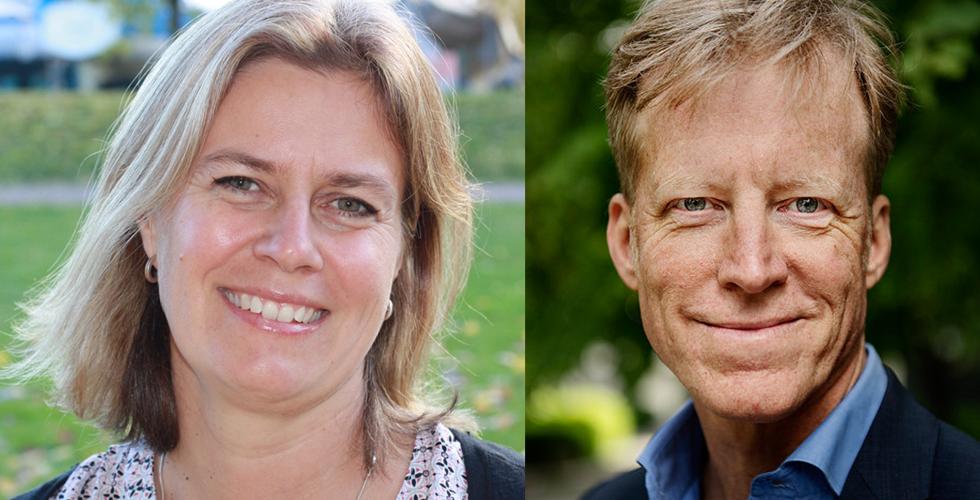Wants regular surveys of sexual harassment
Now is the time for a new survey of sexual harassment in the sector, according to the KIF Committee. This was one of the comments made by Ragnhild Hennum, the KIF chair and Dean, when she participated in the Ministry of Culture and Equality's input meeting.
The input meeting was held in relation to the Ministry's work on a new white paper on sexual harassment.
Sexual harassment in academia has become a recurring theme in recent years, especially since the #MeToo movement. It is now a fixed item on the agenda in both education and working life.
After the first survey (2019) of harassment and bullying at universities and university colleges, this type of harassment became something that research institutions had to deal with in earnest.
Read the news article New survey indicates urgent need for research on sexual harassment
In recent years, many universities and university colleges have established whistleblowing systems and action plans to combat sexual harassment, but there has not been a new survey of the scope of the problem in the last four years.
When the online newspaper Khrono investigated the situation in March this year, it found that there were more than 50 sexual harassment cases at public universities and colleges in Norway in 2022. The figures from last year’s student health and well-being survey (SHot survey) did not make for encouraging reading either: three out of ten students reported that they had been subjected to some form of sexual harassment.
The Swedes – and Europe – lead the way
Last year, four research institutions in Sweden conducted a major survey of sexual harassment in the university college sector. The survey was distributed to a quarter of all employees, research fellows and students at Swedish educational institutions, and had a response rate of 32 per cent. Among other things, the survey showed that three per cent of men and five per cent of women had experienced unwanted sexual attention in the past year, and that young people, students and women were most at risk.
Several surveys have also been conducted outside of Scandinavia. The EU project UniSAFE issued two reports in 2022: a scoping survey and a mapping of gender-based violence. 42,000 students and staff at European research institutions responded to the survey, which showed that almost one in three respondents had experienced sexual harassment.
More in the news article Call for measures to combat gender-based violence in academia
In addition, the European project GENDERACTIONplus, which started last year, has gender-based violence in academia as one of its five priority areas. The term gender-based violence includes sexual harassment.
According to the Committee for Gender Balance and Diversity in Research (the KIF Committee), now is the time for Norway to follow up with a new survey. As early as last year, Ragnhild Hennum, Dean of the Faculty of Law at the University of Oslo and Chair of the KIF Committee, called for a new national survey of sexual harassment in the research sector.
Hennum is not alone in her opinion. Back in 2021, the rector of OsloMet at the time, Nina Waaler, told Forskerforum that she also supported a new survey.

A new survey is wanted
The KIF Committee has long viewed its efforts to combat sexual harassment as part of its mission to promote gender equality in the university and university college sector.
They believe that it is now time for a new survey of sexual harassment in the sector.
Ragnhild Hennum participated in the input meeting as both a dean and as KIF chair. Some of the matters Hennum raised were:
- The university, university college and institute sector must be given special attention in the white paper, because of the sector's size and vulnerability.
- The Ministry of Education and Research should be involved in the work and given tasks related to the higher education sector.
- The task of the Ministry of Education and Research should be to conduct a survey that maps the extent of sexual harassment in our sector every four or five years.
- Students should be involved in efforts to combat sexual harassment, and the Ministry should ensure that all institutions have functioning «speak up» systems that allow students and employees to report incidents.
- Many research institutions report on their activity and reporting obligations, and consideration should be given to including complaints of sexual harassment in their reporting.
Important that all research institutions participate
The KIF Committee is concerned with ensuring that all research institutions under the Ministry of Education and Research participate in the survey. In 2019, participation was voluntary.
The Universities Norway's (UHR) former working group against bullying and harassment, UHRMOT, was also among those working to facilitate the survey conducted in 2019. (More in the fact box.)
We asked the chair and secretary general of UHR, Sunniva Whittaker and Nina Sandberg respectively, whether UHR supports the proposal for a new national survey. Sandberg responded by email that the chair speaks on behalf of the board, and the issue had not been discussed by the board.
White paper on sexual harassment
The Ministry of Culture and Equality is coordinating the work on the white paper on sexual harassment, and asked for several meetings this spring to obtain input.
The Government states on its website that many areas of society are affected by sexual harassment and that they would like input about the challenges, as well as solutions that aid prevention.
The deadline for written submissions was 25 April 2023.
Since its inception in 2018, the Universities Norway (UHR) working group against bullying and harassment, UHRMOT, has promoted the need for a national survey of sexual harassment in the sector.
In 2018, the board of UHR declined the working group conducting such a survey. At the same time, the Council encouraged each institution to conduct its own surveys. Shortly afterwards, the University of Agder, together with the University of Oslo and the Oslo National Academy of the Arts, therefore initiated a survey and invited all member institutions of UHR to participate.
In the spring of 2019, the KIF Committee and UHRMOT sent a letter to the Ministry of Education and Research pointing out the need for research in this area, with a view to improving measures, problem solving and prevention.
The first – and so far only – survey of sexual harassment was presented in August 2019.
The Government is now working on a white paper on sexual harassment and has asked for input. The deadline for submissions was 25 April 2023.
Read the KIF Committee's full response (in Norwegian)
More letters from the KIF Committee (in Norwegian)
Figures from the online newspaper Khrono:
In 2022, there were over 50 reports of sexual harassment at public universities and colleges in Norway. This is an increase compared with the average for previous years. The figures were collected by Khrono from 19 of 21 public universities and colleges. The cases concern both employees and students.
Read more about harassment and news articles about sexual harassment on Kifinfo.





